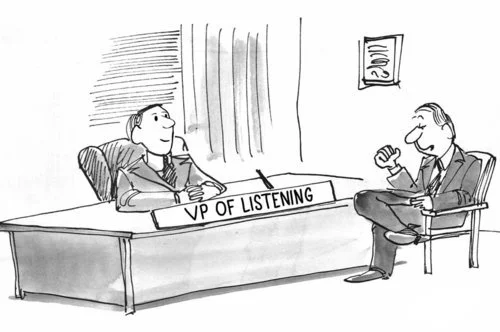"What I Look For In a CEO" - Founder In a StartUp
Jeff Yoshimura has been a part of some big growth companies, such as Salesforce, Zuora, Elastic, and Snyk. Currently, Jeff is co-founder for AnyTeam, the world's first sales OS for AEs.
Prior to AnyTeam, Jeff launched AI/machine learning company Ayasdi out of stealth, was a founding team member of Zuora (NYSE: ZUO) helping create a new market segment, the “Subscription Economy,” and was one of the first few hundred employees at Salesforce, where he led some of the early enterprise deployments of SaaS and was part of the team that launched the AppExchange, one of the first B2B app marketplaces.
He was also SVP/CMO at Elastic, CMO at Snyk, and Investor/LP at several startups and VC firms.
We caught up with Jeff to understand when considering a startup, what attributes does he looks for in the Founder & CEO.
Bob: Let’s start at the 30,000-foot level. What are you looking for in a CEO when you’re considering joining a startup?
Jeff: What I look for in a CEO – and specifically a founder or founders – is the product vision for what the product could be become five or ten years from now. I like to ask questions, such as, what personal journey lead you to create the product? What customer pain points are addressed by the product? How will the product evolve or change over-time to address new and more complex use cases? How will the product help customers do things “massively” better than they do today and tomorrow as needs change? I’ve been fortunate to have worked for and work for CEOs who have a long-term vision addressing a wide set use cases and solving complex problems.
For example, in the early days, Salesforce solved a big pain points for end users, specifically, sales reps and managers. They were frustrated with top down IT tools like Siebel that were difficult to use, over-engineered, and didn’t work online (anyone remember the days of remote dial up to get access to a report?). On the contrary, Salesforce was easy to use and allowed users to connect to their CRM data anywhere with a click of a browser. However, a cool, new sales solution wasn’t just the vision – it was about helping organizations move many types of business processes and applications online, CRM being the first.
At Zuora, we realized that existing billing systems were built for one-time product sales and manufacturing processes. As such, they would not meet the needs of consumers and businesses moving to subscription-based business models. We called this the “Subscription Economy.” While we could have just focused on billing, instead, we looked at every aspect of a subscription, and how we can help an entire organization build, manage, and operate a subscription business. Today, this vision is being realized by organizations of all sizes moving to the Subscription Economy and adopting Zuora’s products for more than billing.
Elastic is also doing this. While we power the real-time search experience for common applications and websites, such as, Wikipedia, NY Times, or Yelp, search has always been something more than a simple search box. Today, search enables how a user swipes left or right on Tinder, how a user zooms in or out on a map in Zillow, and how a use finds the best deal on Groupon or a driver on Uber. But it is also what powers finding real-time insights in billions of log or security events for large banks, healthcare organizations, retailers, tech companies, or telecoms. When the company was started, search was never the end game, but the start and a foundation to solve many use cases.
Bob: What kind of background does a successful CEO need to have?
Jeff: There is no silver bullet here. What is most important is for a CEO to have empathy for end users and customers. With empathy, one listens and one learns. This helps a CEO guide the company to build the right product and solutions for long-term success.
Bob: Can you elaborate more on empathy?
Jeff: Empathy is both external and internal. Not only does one need to have empathy for end users and your customers, but also for employees. Having empathy within the organization requires creating a culture that’s inclusive of everyone, building a culture of trust and transparency, and having a company where collaboration is valued without *ss holes.
Bob: What else needs to be in the CEO’s makeup?
Jeff: Building sustainable company requires the sum of all parts working together across the organization, not just a few pieces. The CEO helps makes sure this all happens, and this requires, hiring the right people and team, setting the tone for the company’s culture, and driving balance and scale across product, engineering, sales, marketing, finance, HR, and G&A.
Bob: How do size and the company’s stage of growth matter?
Jeff: It matters a lot. In an earlier stage company, your product is new and early customers are helping you define the product roadmap. While constant and continuous feedback is critical, it’s important not to over-rotate or do unnatural things unaligned to the future. For example, a customer may ask you to build a feature and may even offer to pay you for it. If you build it, what trade-offs you are making? How does it help you achieve your product vision? How does it hurt you? In a later stage company with more mature products, it’s about scaling the business, driving efficiencies and margins, and most importantly, expanding the total addressable market. Both are fun and full of challenges.
Bob: Does the power of the vision outweigh other factors, such as the CEO/founders' previous go-to-market product success before coming up with this vision?
Jeff: While vision is important, execution is essential as I’ve said before. Building a long-term successful company requires orchestration across product and engineering, sales and marketing, and finance, HR, and G&A. It’s wonderful thing when all of these things come together.
Bob: Here’s one last question: Are you looking for perfection? What if you walk in and you're really excited about the vision but you can see some things need to be changed?
Jeff: I do not look for perfection. No company and no one individual is perfect, including me. With any new endeavor, it's important to align with your CEO on the critical priorities for the business, establish clear and open communication channels, execute on a plan that is measurable, and allow for rapid experimentation and adaptability.







